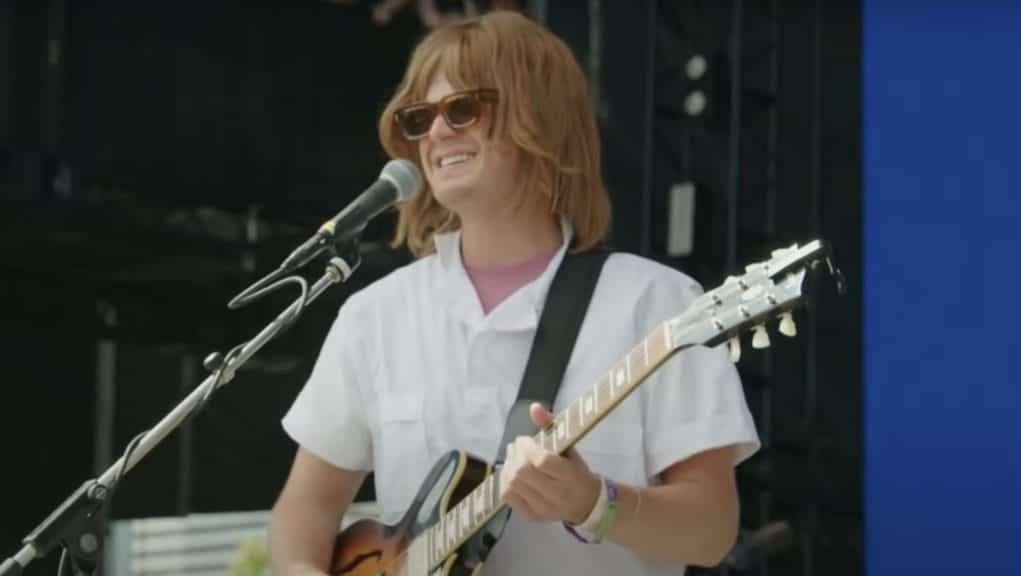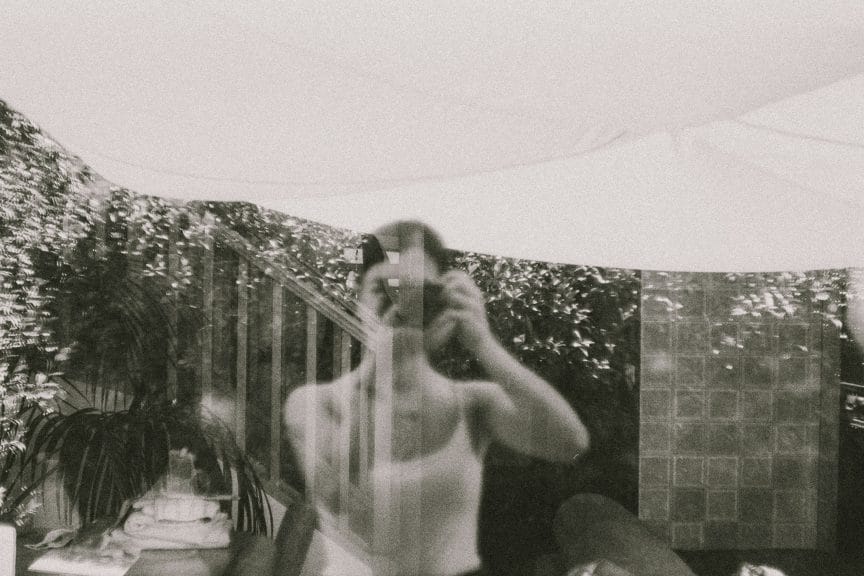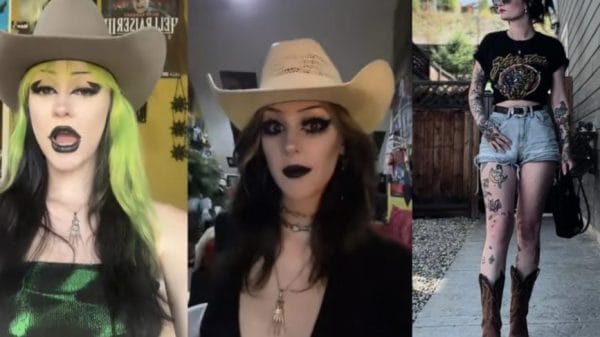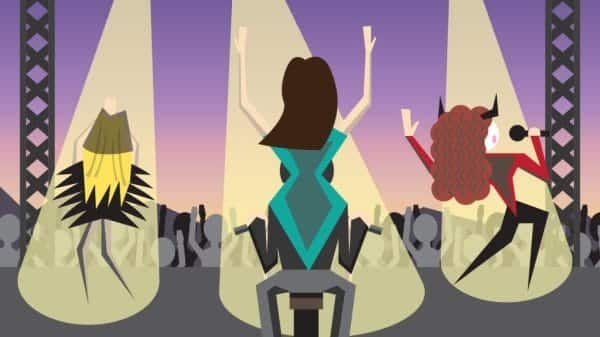“And when I’m back in Chicago, I feel it…” This iconic line from Djo’s sleeper hit “End of Beginning” has utterly transformed TikTok’s “For You Page” (FYP). A breeding ground for nostalgia, TikTok glamorizes what once was, encapsulating Gen Z’s preoccupation with age, change, and declining mental health.
Djo, better known as actor Joe Keery, released “End of Beginning” on September 16th, 2022, as part of his album DECIDE. The song is achingly bittersweet: a testament to personal evolution but also a reflection upon what might have been. This dichotomy is especially poignant for Keery. A graduate of DePaul University, he left Chicago in 2016 to play Steve Harrington in the hit show Stranger Things.

“End of Beginning” is rooted in Keery’s own experiences. However, the song’s overarching sentiment clearly resonates with a larger audience, as demonstrated by its increasing popularity on TikTok. The two-year-old song has likewise crept to #11 on the Billboard Hot 100.
In the context of TikTok videos, “Chicago” generally serves as a proxy for the past. It encompasses childhood holidays, former relationships, cultural trends, and even body image. The common thread underlying these themes is a pervasive nostalgia for a past version of one’s self. Something as simple as a photograph may trigger this, but it also takes more visceral shapes. And it is not limited to Keery’s song.
Post-Summertime Sadness
Gen Z nostalgia mirrors both annual and seasonal cycles. The majority of nostalgic TikTok videos cite a certain year; however, summer acts as another dominant anchoring force.
For instance, the video above invokes 2022 as its focal point, yet multiple commenters specifically emphasized the summer of that year. One user noted, “summer of 22 to be exact. i loved the way i looked and not all but some of the person i was.” User 1vf.jpg concurred, adding that “May 2022 was totally fun. Indescribable feelings.”
Numerous comments employed similar language, lamenting the collective loss of “happiness,” “passion,” and even “butterflies” as years like 2022 slip further out of reach.
Haunted By The Holidays
TikTok’s seasonal nostalgia also extends to holidays, primarily Christmas.
@hauntedziplock’s TikTok features a series of stereotypical, universalized Christmas images. The digital snapshots appear to be dated in the early 2000s, some with a grainy, pre-iPhone stylization which enhances their nostalgic power. Plaid pajama pants, bustling, grey-skied shopping centers, flushed mornings of giddy gift-opening, and savory red-and-green confections unfurl across viewers’ screens in a vibrant stream of holiday cheer.
One commenter, @joeyz722, declared that “it hurts seeing these videos…honestly it’ll never be the same.” @conniesgxf chimed in with a similar statement: “I would do anything to get that back.” Other commenters assumed a more optimistic outlook, vowing to re-live the magic vicariously through their own children.
These TikTok slideshows manage to evoke the youthful bliss and anticipation of Christmases past, which has seemingly subsided for Gen Z.
The “Old Disney”
Gen Z’s TikTok nostalgia also manifests in other cultural contexts, even penetrating the silver screen. In particular, users’ reconnection with past Disney animation styles is igniting a TikTok renaissance.
Draped in sparkling, delicate color palettes of periwinkle and violet, Disney’s older films represent the gilded memories of Gen Z’s childhood.
User @rainauuur_xxx concluded that “this type of Disney has a different vibe, it gives me peace and there’s a magic I can’t explain.” Meanwhile, @uhhh.17 commented, “Bring back my childhood.”
Gen Z pins ideals of carefree youth to specific images and aesthetics, channeling shared nostalgia into powerful sensory outputs.
Pining for the Pandemic?
Yet another “TikTok nostalgia” trend involves the 2020 Covid pandemic, subcategorized as “lockdown nostalgia.”
Professionals and urban geographers observed a camaraderie in the early stages of the pandemic, as large swathes of the population committed to a lockdown lifestyle and explored a range of new hobbies. For a moment, life seemed to stand still, and many maximized the opportunity to experiment.
Gen Z tends to map lockdown nostalgia onto TikTok trends, such as viral dances and sounds. The app cultivated a critical locus for casual connection amidst sheer chaos.
@sadrapsforever’s “quarantine nostalgia” TikTok is relatively basic. It consists of the user scrolling through viral TikTok sounds from the pandemic era. Yet it garnered almost 3 million likes, as well as a plethora of comments.
One commenter declared: “i miss 2020…during 2020, i hated it but as i got older i’m realizing that that was a time where u could be yourself and not be judged. and the music was the bomb.”
Interestingly, the comment sections of “NostalgiaTok” most closely resemble a vague, generalized consensus, as opposed to substantial discourse. Gen Z is reaching back for some abstract paradise, but no one can quite articulate what that was — likely because heightened distance from a past time period affords a corresponding potential for glorification.
The New York Times article “Why We Romanticize the Past” identifies this as “fading affect bias.” Negative memories fade more quickly than positive ones, offering a convenient coping mechanism to fill in memory gaps with falsified positives. The past then becomes a cocoon of ill-defined comfort juxtaposed against current adversity.
Gen Z and Mental Health
And Gen Z is grappling with an unprecedented level of mental turmoil — a conclusion extrapolated from several research studies.
According to a report from Gallup and the Walton Family Foundation, “Less than half (47%) of Gen Z Americans are thriving in their lives — among the lowest across all generations in the U.S. today and a much lower rate than millennials at the same age.”
This is perhaps where generational nostalgia comes into play. Members of Gen Z evidently long to escape their dissatisfaction by turning back the clock and dwelling in “simpler” times. The algorithmic nature of TikTok scrolling, liking, and commenting further exploits the nostalgia phenomenon, creating an ironically self-fulfilling prophecy of unfulfillment.
For Gen Z, the reality of the past is less important than the illusory sanctuary that it provides. Yet it is critical that younger generations also learn to look forward — to embrace the future with open arms and to redefine happiness in present terms.
So if you often find yourself with a pit in your stomach, reminiscing about the “good old days,” maybe you really do miss elements of your past…or maybe you just need to turn off TikTok.













